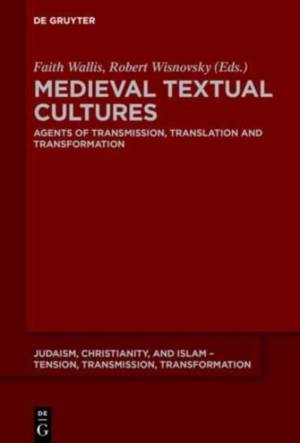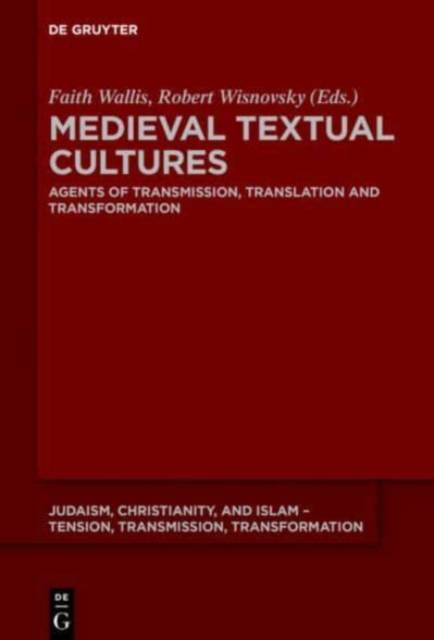
- Afhalen na 1 uur in een winkel met voorraad
- Gratis thuislevering in België vanaf € 30
- Ruim aanbod met 7 miljoen producten
- Afhalen na 1 uur in een winkel met voorraad
- Gratis thuislevering in België vanaf € 30
- Ruim aanbod met 7 miljoen producten
Zoeken
Medieval Textual Cultures
Agents of Transmission, Translation and Transformation
€ 35,45
+ 70 punten
Omschrijving
Understanding how medieval textual cultures engaged with the heritage of antiquity (transmission and translation) depends on recognizing that reception is a creative cultural act (transformation). These essays focus on the people, societies and institutions who were doing the transmitting, translating, and transforming -- the "agents". The subject matter ranges from medicine to astronomy, literature to magic, while the cultural context encompasses Islamic and Jewish societies, as well as Byzantium and the Latin West. What unites these studies is their attention to the methodological and conceptual challenges of thinking about agency. Not every agent acted with an agenda, and agenda were sometimes driven by immediate needs or religious considerations that while compelling to the actors, are more opaque to us. What does it mean to say that a text becomes "available" for transmission or translation? And why do some texts, once transmitted, fail to thrive in their new milieu? This collection thus points toward a more sophisticated "ecology" of transmission, where not only individuals and teams of individuals, but also social spaces and local cultures, act as the agents of cultural creativity.
Specificaties
Betrokkenen
- Uitgeverij:
Inhoud
- Aantal bladzijden:
- 223
- Taal:
- Engels
- Reeks:
- Reeksnummer:
- nr. 6
Eigenschappen
- Productcode (EAN):
- 9783110601381
- Verschijningsdatum:
- 9/04/2018
- Uitvoering:
- Paperback
- Formaat:
- Trade paperback (VS)
- Afmetingen:
- 156 mm x 234 mm
- Gewicht:
- 322 g

Alleen bij Standaard Boekhandel
+ 70 punten op je klantenkaart van Standaard Boekhandel
Beoordelingen
We publiceren alleen reviews die voldoen aan de voorwaarden voor reviews. Bekijk onze voorwaarden voor reviews.










